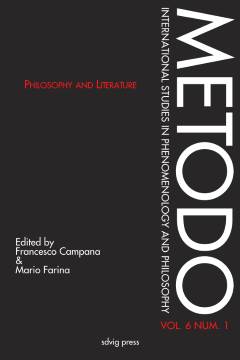The cognitive value of modernist literature
Ricoeur's conception of productive imagination reconsidered
pp. 161-175
Abstract
When debating the cognitive value of the novel, philosophers often focus on the resemblance between real and fictional world. Therefore, it is a hardly surprising that modernist literature, such as Franz Kafka’s novels, are rarely used as examples to support claims about the novel’s cognitive value. In my paper, I therefore offer a starting point for the development of a theory on the novel’s cognitive value that also works for modernist literature by building on Paul Ricoeur’s conception of productive imagination. Starting from a case study of a short story of Kafka, I develop an account of the novel’s cognitive value that is based on the tension between the literary work’s invitation to interpretation and its simultaneous resistance against interpretation.
Publication details
Published in:
Campana Francesco, Farina Mario (2018) Philosophy and literature. Metodo 6 (1).
Pages: 161-175
Full citation:
Verheyen Leen (2018) „The cognitive value of modernist literature: Ricoeur's conception of productive imagination reconsidered“. Metodo 6 (1), 161–175.


